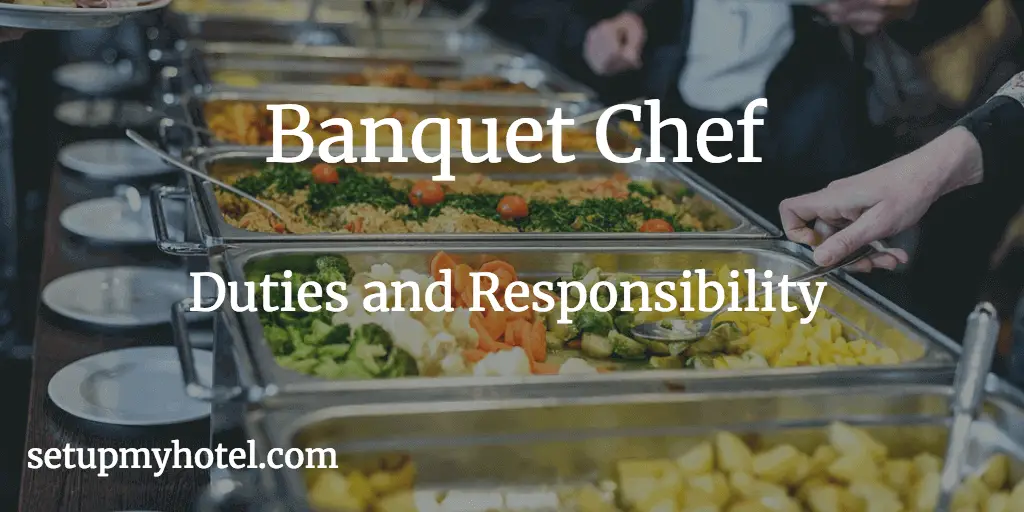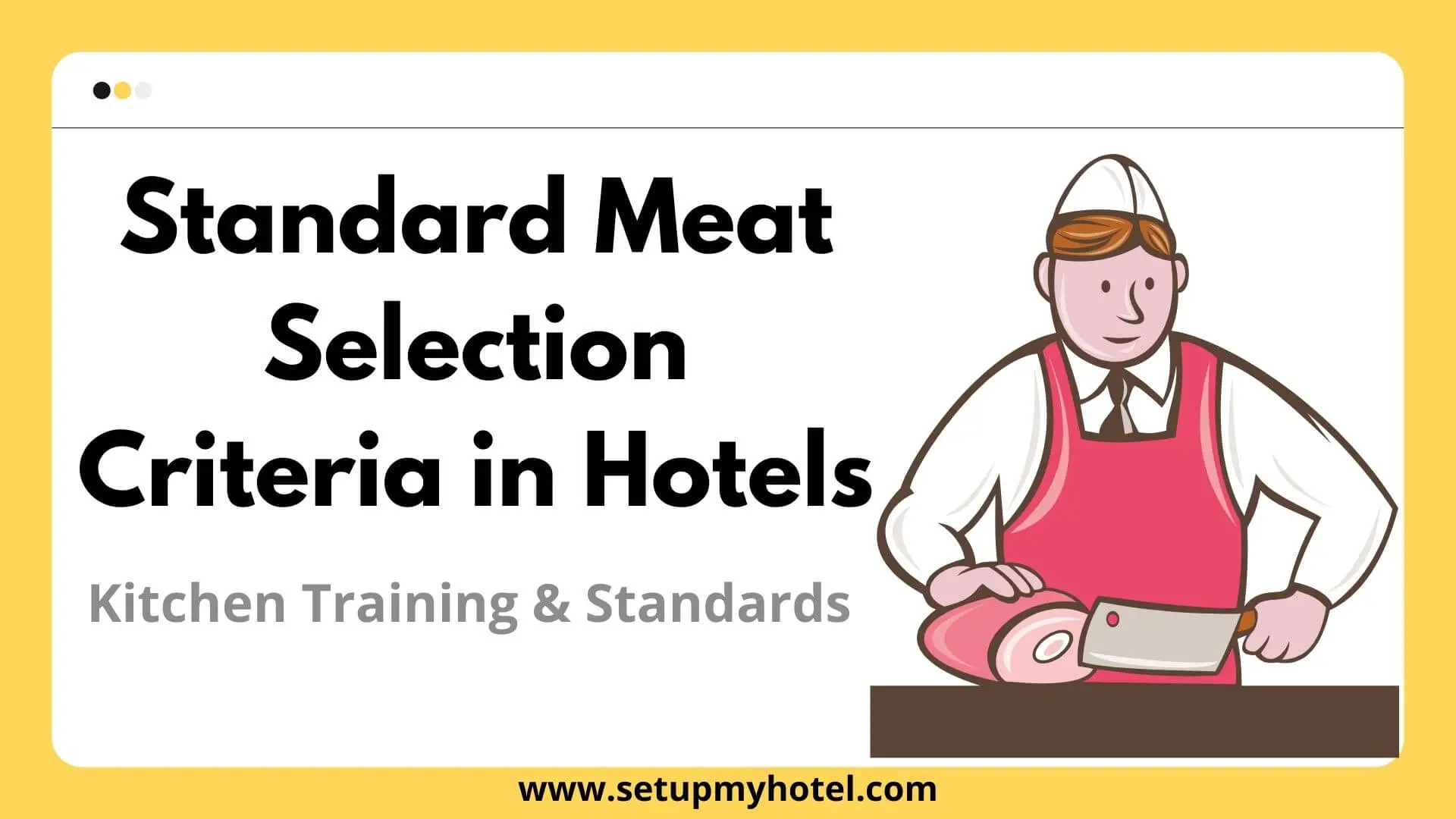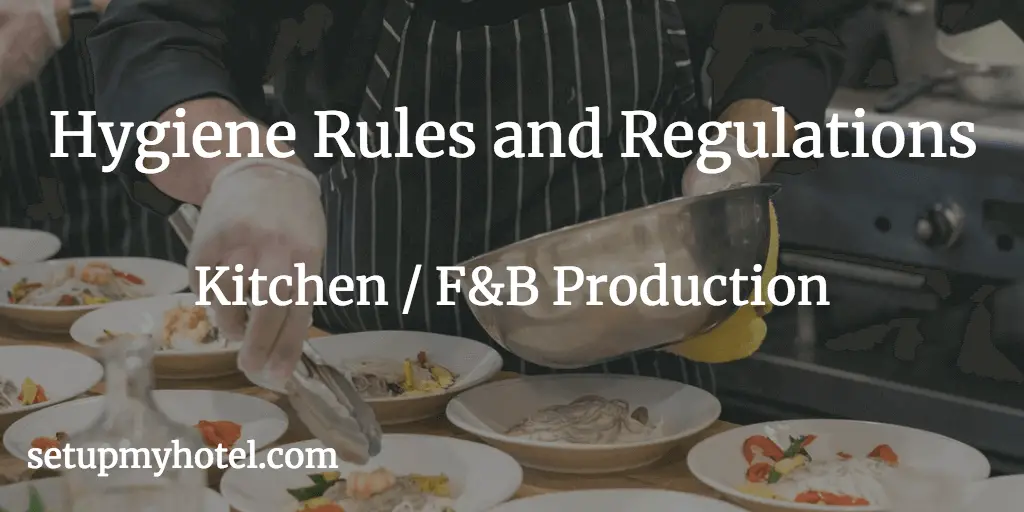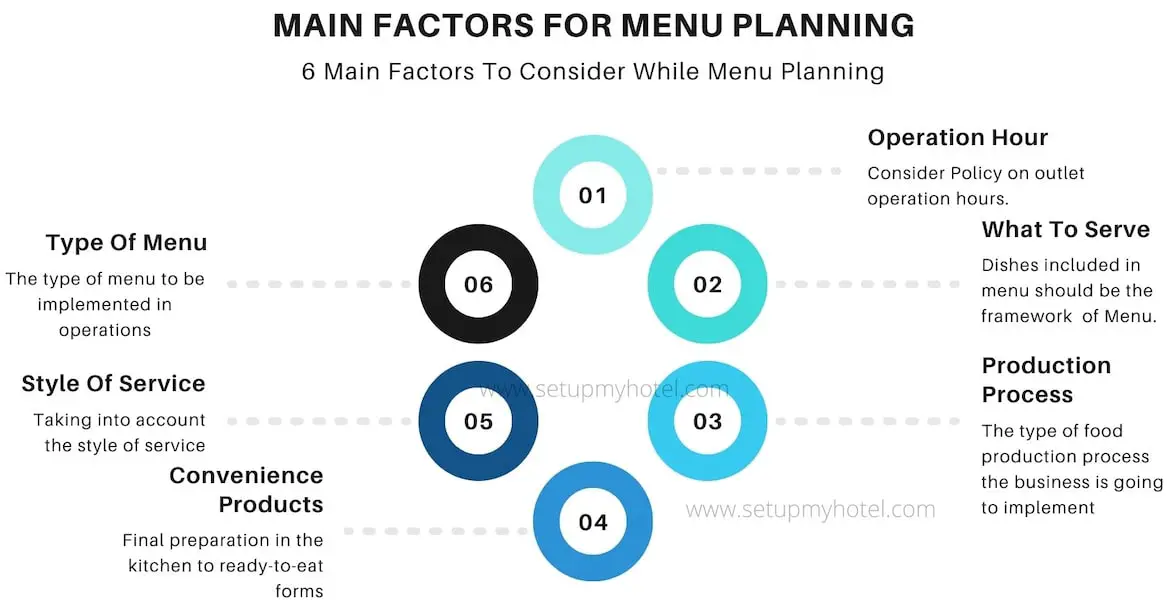Commis I Job Description / Range Chef Job Description

Job Description, Duties, Interview Questions and Salary For Commis I As a Commis I, you will be responsible for assisting ...
Read more
39 Duties And Responsibility Of Banquet Chef | Catering Chef

Job Description, Duties, Interview Questions and Salary for Banquet Chef As a Banquet Chef, you will be responsible for overseeing ...
Read more
37 Duties And Responsibility For Executive Chef

Job Description, Duties, Interview Questions and Salary for Executive Chef Position An executive chef is a highly skilled culinary professional ...
Read more
Standard Meat Selection Criteria In Hotels

Standard Meat Selection Criteria in Hotels The standard meat selection criteria in hotels involve a careful consideration of various factors ...
Read more
Kitchen Organization Chart / F&B Production Organization Chart

Kitchen Organisation Chart / F&B Production Organization Chart The organisation chart of F&B Production department should provide a clear picture of the lines ...
Read more
39 Hygiene Rules And Regulations For Kitchen Staff / Chefs

Hygiene Rules for Hotel Kitchen and Food Production Staff Maintaining proper hygiene in a kitchen is essential for the safety ...
Read more
Management – Steps To Take When A Guest Complains Of Foodborne Illness

Hotel Management’s Steps to Take When Handling Guest Complains of Food Poisoning The Hotel Management should have a plan for ...
Read more











